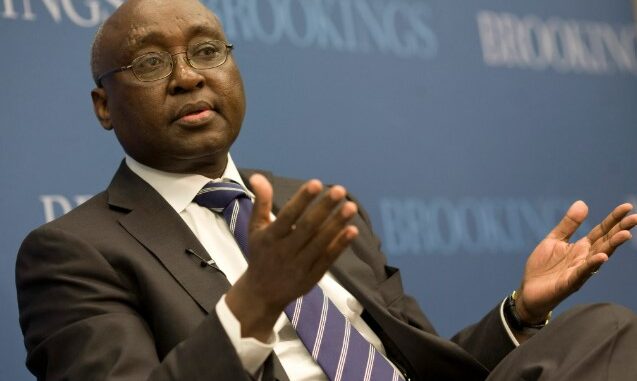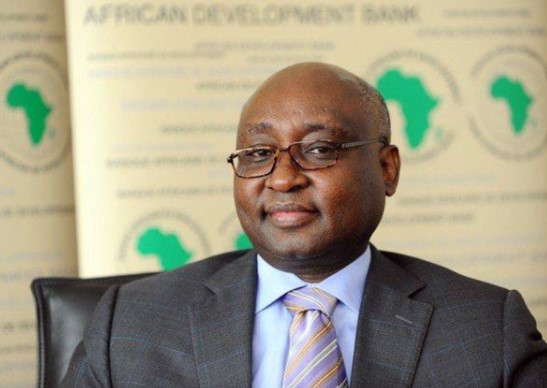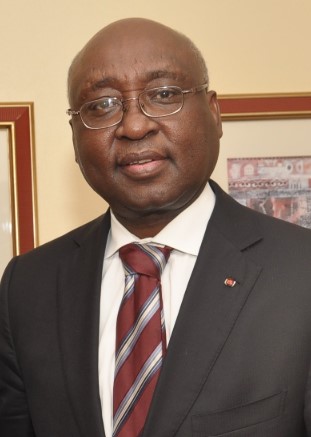
Here is a detailed Donald Kaberuka biography.
Donald P. Kaberuka is a distinguished Rwandan economist, banker, and development expert who has played a significant role in Africa’s economic transformation.
Best known for his tenure as the President of the African Development Bank (AfDB), Kaberuka has been instrumental in shaping policies that drive financial growth and economic stability across the continent.
His career spans decades of leadership in finance, economic planning, and governance, making him a key figure in Africa’s development landscape.
Beyond his professional achievements, Kaberuka is a respected advisor to international organizations and a strong advocate for sustainable economic policies.
Donald Kaberuka Biography Overview
| Attribute | Details |
|---|---|
| Full Name | Donald P. Kaberuka |
| Date of Birth | October 5, 1951 |
| Place of Birth | Byumba, Rwanda |
| Nationality | Rwandan |
| Education | BA – University of Dar es Salaam; MPhil in Development Studies – University of East Anglia; PhD in Economics – University of Glasgow |
| Languages | English, French, Swahili |
| Current Roles | Managing Partner at SouthBridge; Board Chair of the Global Fund to Fight AIDS, Tuberculosis, and Malaria |
Early Life and Education of Donald Kaberuka
Born on October 5, 1951, in Byumba, Rwanda, Donald Kaberuka grew up during a period of significant political and economic transitions.
His early years were marked by the challenges of a developing economy, but his strong academic inclination set him apart. He pursued higher education with a keen interest in economic policies and their impact on developing nations.
Kaberuka obtained his Bachelor of Arts degree from the University of Dar es Salaam in Tanzania, where he developed a solid foundation in economic principles.
He furthered his education by earning a Master of Philosophy in Development Studies from the University of East Anglia in 1979, focusing on policies that foster sustainable economic growth.
His thirst for knowledge led him to the University of Glasgow in Scotland, where he completed his PhD in Economics.
His doctoral research centered on African economies, resource management, and financial stability, providing him with the expertise that would later shape his career.
Donald Kaberuka Career
Minister of Finance and Economic Planning (1997–2005)
In 1997, Kaberuka was appointed Rwanda’s Minister of Finance and Economic Planning, taking office at a critical time when the country was recovering from the devastating 1994 genocide. His role was pivotal in implementing economic reforms that stabilized Rwanda’s financial systems.
Through strategic debt management and sound fiscal policies, he helped Rwanda qualify for debt relief under the Heavily Indebted Poor Countries (HIPC) initiative in 2005.
Under his leadership, Rwanda saw steady economic growth, significant poverty reduction, and improvements in infrastructure and social services.
President of the African Development Bank (2005–2015)
In July 2005, Kaberuka was elected as the seventh President of the African Development Bank (AfDB), assuming office on September 1, 2005.
His leadership at the AfDB was transformative, focusing on private sector development, infrastructure investment, and regional integration. He played a crucial role in positioning the AfDB as a key institution for Africa’s development financing.
His tenure saw an expansion in funding for major infrastructure projects, particularly in transportation and energy, and a shift towards leveraging private investments for economic development.
In 2010, he was re-elected for a second term, further solidifying his legacy as one of Africa’s most impactful financial leaders.
Post-AfDB Roles
After leaving the AfDB in 2015, Kaberuka co-founded SouthBridge, a financial advisory firm that provides strategic guidance to African governments and businesses.
His expertise remains highly sought after, leading to his appointment as Board Chair of the Global Fund to Fight AIDS, Tuberculosis, and Malaria in 2019.
He continues to serve on various advisory boards and remains an influential voice in global economic forums.
Donald Kaberuka Net Worth
As of 2024, Donald Kaberuka’s estimated net worth is approximately $5 million, primarily derived from his extensive career in economics, financial leadership, and consultancy roles. His wealth reflects decades of impactful service in the public and private sectors.
Donald Kaberuka Recent Activities
In June 2024, Kaberuka was a keynote speaker at the Afreximbank Annual Meetings in Nassau, alongside economist Jeffrey Sachs. He addressed pressing financial issues, emphasizing the importance of mobilizing internal savings and strengthening African institutions to navigate global economic challenges.
Frequently Asked Questions
What are Donald Kaberuka’s notable achievements at the African Development Bank?
Kaberuka significantly enhanced the role of the AfDB in Africa’s economic development.
He prioritized private sector investments, infrastructure financing, and regional economic integration. His tenure helped the AfDB increase its capital base and expand funding for critical projects, particularly in energy, transportation, and agriculture.
How did Donald Kaberuka contribute to Rwanda’s economic recovery post-1994?
As Rwanda’s Minister of Finance and Economic Planning, he implemented key economic policies that stabilized the economy, attracted foreign investments, and promoted sustainable growth.
His efforts were instrumental in helping Rwanda qualify for debt relief and in positioning the country as one of Africa’s fastest-growing economies.
What roles has Donald Kaberuka undertaken after leaving the AfDB?
After his tenure at the AfDB, Kaberuka co-founded SouthBridge, a financial advisory firm, and was appointed Board Chair of the Global Fund to Fight AIDS, Tuberculosis, and Malaria.
He remains active in international economic policy discussions and serves on advisory boards of major global institutions.
Donald Kaberuka’s career exemplifies dedication to economic development, strategic leadership, and financial reform, making him one of Africa’s most respected economic minds.


Leave a Reply